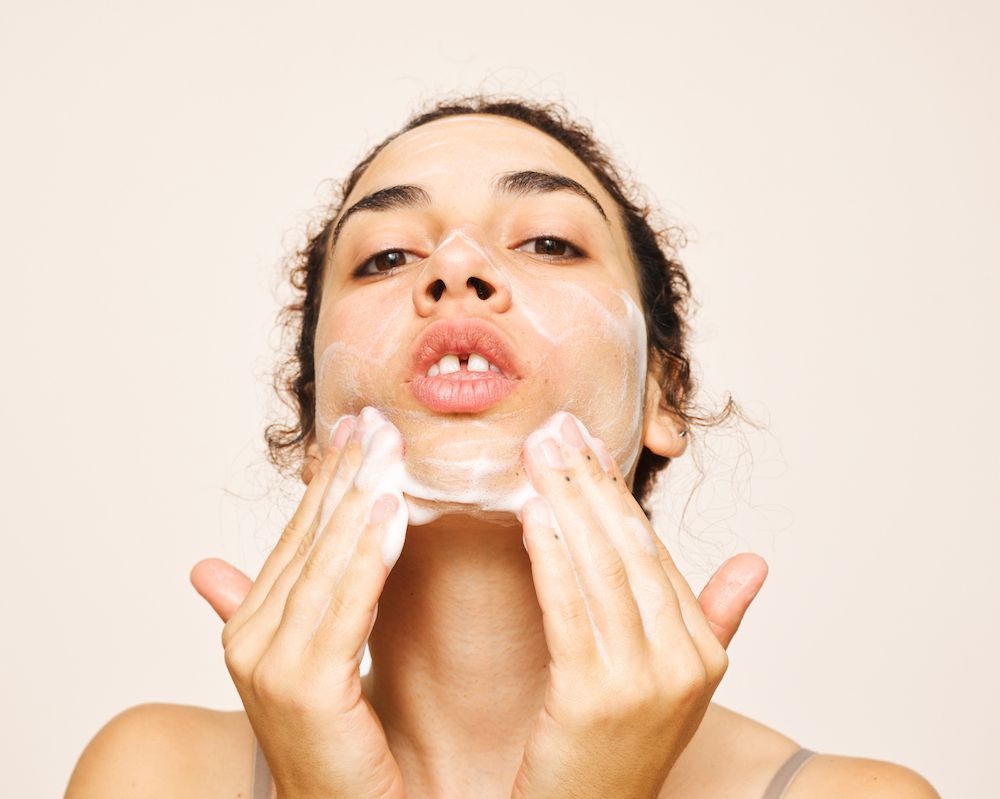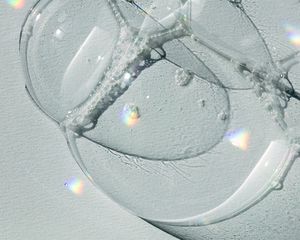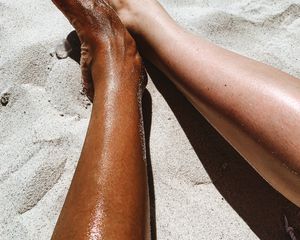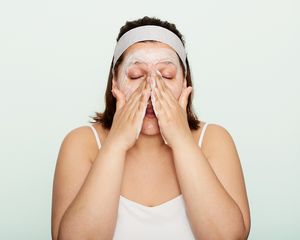
Stocksy
Most people wash their faces at least once every single day. Whether you're dedicated to an elaborate nine-step skincare routine or you like to keep things simple, face washing is probably part of your regimen. But have you ever stopped to think about the details of how you wash your face? For example, is cold water better for face washing than warm? Or does temperature not really matter all that much?
To find out what temperature water is best for face washing (and, of course, why), we reached out to leading dermatologists Rachel Nazarian, MD, Debra Jaliman, MD, and Susan Massick, MD. Here's what we learned:
Meet the Expert
- Dr. Rachel Nazarian, MD, board-certified dermatologist at Schweiger Dermatology Group.
- Dr. Debra Jaliman, MD, board-certified dermatologist and assistant professor of dermatology at Icahn School of Medicine at Mount Sinai.
- Susan Massick, MD, board-certified dermatologist at The Ohio State University Wexner Medical Center.
Should You Use Cold or Hot Water to Wash Your Face?
Dermatologists say that cool or lukewarm water are better choices for your washing your face than hot water. One reason for this guidance is that many common skin conditions—like rosacea and atopic dermatitis (aka eczema)—can be worsened and triggered by hot temperatures, Nazarian says.
But that's not all. Another reason to steer clear of super hot water temperatures when washing your face, Nazarian says, is that hot water can strip natural hydrators and moisturizers from the skin, "making the skin dry and inflamed over time."
But here's the most important information of all: It turns out neither cold nor hot water is the best option when washing your face. The most ideal water temperature for face washing is lukewarm, according to the American Academy of Dermatology.
"Water temperature is like the Goldilocks rule: not too hot, not too cold," Massick says. "Choose a temperature that is right in the middle—a lukewarm temperature that won’t strip the natural oils by being too hot or contracting from being too cold."
Benefits of Washing Your Face With Cold Water
While lukewarm water is best, dermatologists say washing your face with cool or cold water can help your skin in a few ways. Here are some of the leading reasons someone may want to wash with cool water:
- Cool water can help with acne-related irritation, Jaliman says.
- Cold water can help reduce skin puffiness—especially the puffy eyes many people experience in the morning upon waking, Jaliman says.
- Cold water can cause vasoconstriction, which is a narrowing of the blood vessels that can temporarily give skin a brighter and less inflamed appearance, Nazarian says.
Drawbacks to Using Cold Water
Everybody's skin and lifestyle habits are a bit different, so this will vary from person to person, but washing with cold water carries a few potential downsides.
One point to consider is that cold water may not cleanse your face of bacteria and pollutants as effectively as washing with warm water, Jaliman says. On that note, your pores can react to cold water by contracting, which may trap grime, bacteria, and oil. Essentially "making cleansing less effective," Massick says.
Another drawback is comfort. If you live in a colder climate or are particularly sensitive to cold water and cold temperatures, washing with cold water may not feel as good as washing your face with lukewarm water.
Face Washing Tips to Keep in Mind
It's easy to get wrapped up in all the minute details, but face washing doesn't need to be complicated. Here are some basics to keep in mind while washing your face:
- Wash With Lukewarm Water: Dermatologists agree that lukewarm water is best for washing your face. But a splash of cold water can be nice first thing in the morning or after washing your face with lukewarm water, dermatologists say.
- Avoid Extremely Hot Water: When washing your face, hot water most likely isn't going to do you any favors in terms of skin health. Hot water can strip your skin of its natural oils and cause blood vessels to dilate, which can make your skin look redder, Jaliman says.
- Wash Your Face Twice a Day: "Be consistent and try to wash twice daily, particularly at the end of the day to remove dirt, makeup, and bacteria—the daily grime," Massick says.
- Find a Gentle Cleanser You Enjoy: Water temperature isn't the only factor that matters when washing your face. A gentle, non-abrasive cleanser helps lay the basic foundation of a solid skincare practice and can be tailored to your specific needs. "For oily or acne-prone skin, for example, salicylic acid or benzoyl peroxide-based washes can be helpful," Massick says. "For sensitive skin or dry skin, use a cream-based cleanser to avoid irritation or worsening dryness."
- Limit Exfoliation to 1-2 Times Per Week: Daily exfoliation isn't necessary, Massick tells us. In fact, it could do more harm than good and lead to irritation, redness, breakouts, and even strip your skin of its natural oils. Stay away from scrubbing your skin, too, as this can also cause irritation.
The Final Takeaway
Daily face washing is important. The American Academy of Dermatology suggests washing with a gentle cleanser and lukewarm water when you wake up, before you go to bed, and after you sweat,
Washing—or even just splashing—your face with cold water can have a few potential benefits, like reducing puffiness and irritation. But experts agree that the best temperature water for face washing is lukewarm.
Most people should avoid washing with hot water, as the hot water can lead to dry and inflamed skin. It can also exacerbate some skin conditions, like rosacea and eczema. If you have any questions or concerns about face washing, definitely reach out to your dermatologist before trying anything new or different—dermatologists know best and can help you make the best choices for your skin.

















